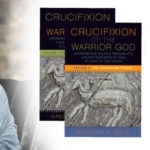We run our website the way we wished the whole internet worked: we provide high quality original content with no ads. We are funded solely by your direct support. Please consider supporting this project.

Are You Fully Alive? Here’s the Key
Image by rashdada via flickr.
The cross reveals the full truth about us. This truth reconnects us with our true source of life, which in turn heals our idol addictions. This dimension of the cross is frankly so breathtakingly beautiful that, so far as I can tell, very few followers of Jesus have ever really grasped it. And it contains the secret to living a fully alive life.
You know what something is worth to someone by what they are willing to pay for it. Consider, then, what God was willing to pay to redeem us and make us his bride. Out of his love for us, the all-holy God was willing to do nothing less than to go to the extremity of becoming our sin (2 Cor 5:21) and becoming our God-forsaken curse (Gal 3:13). Which means that God’s love for us led him to the extreme of somehow becoming his own antithesis. It means, in other words, that God gave us the perfect revelation of his true loving nature as well as the perfect revelation of his love for us by somehow becoming anti-God!
God could not have gone further than he in fact did to free us from our bondage and make us his bride. If the worth of something or someone to another is determined by what they are willing to pay to acquire it, then the fact that God was willing to pay the greatest price that could possible be paid can only mean that we have the greatest possible worth to God. The unsurpassable price God paid for us, in other words, means that we have unsurpassable worth to God.
Which means God could not possibly love us more than he actually does, and we could not matter more to God than we actually do.
Another way of saying this is to say that God loves us with the very same love that God eternally is. Calvary is what the love of the Trinity looks like when it encompasses us. Jesus reflects this truth when he prays that we would know that the Father loves us with the very same love he has for his own eternal Son (Jn 17:26).
We are not going too far if we conclude that God loves us with the same love he has for himself as Father, Son and Spirit. The God whose love led him to go to the infinite extreme of offering up his Son to become our sin and our God-forsakenness also gives us, as a result of this unsurpassable sacrifice, “all things”—including, full participation in the loving community that God eternally is (Rom 8:32).
The most remarkable aspect of God’s promise to always ascribe unlimited worth to us is that God promises this “while we were still sinners” and were positioning ourselves as his enemy (Rom 5:8, 10)! In fact, God made this promise precisely by becoming our sin and by standing in our place as a God-forsaken enemy! This clearly demonstrates that the unsurpassable worth God ascribes to us isn’t based on anything positive he finds in us, and it can’t be lessened by anything negative he finds in us. The cross rather demonstrates that God’s love for us, and our priceless worth to him, are completely based on God’s character, not ours. Even when we are in bondage to sin and are thinking, feeling, and/or acting like God’s enemies, we can trust that it remains as true as ever that we could not be loved more than we actually are, and could not matter more to God than we actually do.
There is nothing that fills my heart with a greater sense of joy, peace, and confidence than the realization that God’s perfect, unsurpassable, unwavering love for me is also unconditional. The person who has allowed this unconditional love to form the core of their self-identity is a person who will remain unshakable in their sense of being fully alive, regardless of what life may throw their way.
—Adapted from Benefit of the Doubt, pages 240-242.
Category: General
Tags: Benefit of the Doubt, Cruciform Theology, Fully Human, Life to the Full, Love, Love of God, Trinity
Related Reading

Thinking Biblically?
Olga Caprotti via Compfight Micah J. Murray over at Redemption Pictures posted this reflection called Beware of Thinking Biblically. The image of a google search on the topic is worth the price of admission. Christians throw around this phrase in some really damaging ways, as Rachel Held Evans demonstrated in her recent publication of A Year…

The Politics of Jesus
Many are so conditioned by the mindset of the world that they can’t even envision an alternative way of affecting society and politics other than by playing the political game as it is done by the established governmental system. Some thus conclude that, since Jesus didn’t try to overhaul the political systems of his day…

Answering an Objection to a Cross-Centered Approach to Scripture
Through Greg’s Facebook and Twitter, we’ve been getting some great feedback and questions regarding his cross-centered approach to Scripture. Several have voiced questions similar to the reader’s (below), so we thought it would be helpful to post Greg’s answer here on his blog.

Podcast: What is Crucifixion of the Warrior God?
In this 100th episode Greg gives us a peek at Crucifixion of the Warrior God. Pre-order your copy of the book here: The Crucifixion of the Warrior God: Volumes 1 & 2 (Fortress Press, 2017) http://traffic.libsyn.com/askgregboyd/Episode_0100.mp3

Homosexuality and the Church: Finding a “Third Way”
Here is a word I a shared this last weekend with Woodland Hills Church (where I’m senior pastor) in response to numerous questions I’ve received over the last several months. People have asked me why the leadership of WHC refuses to jump on the bandwagon of evangelical churches in the Twin Cities who rally their…

Love Never Stops
Greg reflects here that he can be a very cynical person if you ask him about the state of the world around us, but the love of God demonstrated in the Easter narrative gives him confidence and hope. We hope this blesses you as you move through holy week. You can find more videos like this…
